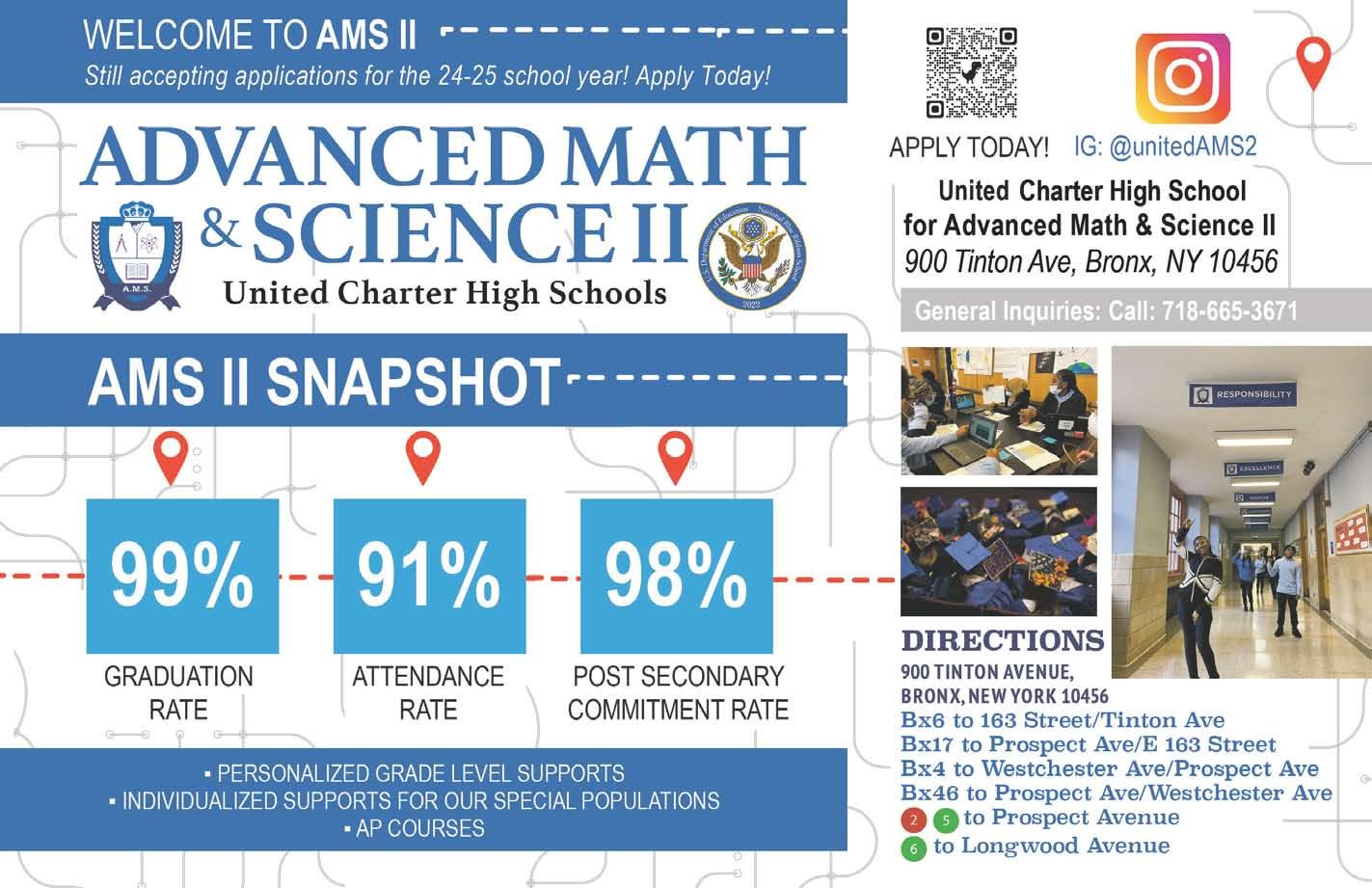
“Genuinely EXTRAORDINARY! ... A circus for all and by all!”
—The New York Times
“The most inclusive show on Earth, Omnium is a beautiful celebration of unity! A place where everyone can feel like they belong.”
—Arlington Catholic Herlad



“Genuinely EXTRAORDINARY! ... A circus for all and by all!”
—The New York Times
“The most inclusive show on Earth, Omnium is a beautiful celebration of unity! A place where everyone can feel like they belong.”
—Arlington Catholic Herlad

The visionary Omnium Circus returns to Queens Theatre with I’m Possible! Everyone is in on the action in a spirited limit-defying & life-affirming spectacular with award winning artistry, memorable music, a heartwarming story & a beautiful mosaic of performers representative of our population.
Sat, Nov. 9th at 2:00pm Sat, Nov. 9th at 7:30pm Sun, Nov. 10th at 3:00pm
Tickets: $27-$37



Purchase tickets at: www.queenstheatre.org
Box Office: (718) 760-0064
Hours: Tuesday-Friday, 12:00pm-6:00pm and 2 hours before performances.
Queens Theatre
14 United Nations Avenue South
Flushing Meadows Corona Park Queens, NY 11368
FREE PARKING
SUBWAY: Shuttle from the 7 stop at Mets-Willets Point, before/after performances.



6 | education
Helping your differently-abled child succeed in school
8 | childcare
Choosing a babysitter for a child with special needs
10 | Family day o ut SUMMIT One Vanderbilt accessibility innovations
12 | s pecial child g lossary
Part of navigating a special needs or disability diagnosis is knowing the words used to describe it. Check out our helpful glossary
14 | s pecial n eeds listings
Helpful resources for the special need parent
Publisher: Clifford Luster
editorial director: Jeannine Cintron
a ssociate Publisher: Erin Brof
advertising d irector: Stacie Goldberg
d e P uty e ditor: Danielle Ramos
editor-at-large: Donna Duarte-Ladd
e vents Manager: Shara Levine s enior d igital e ditor: Thalia Fernandez
e ditorial a ssistant: Alexa Lutter
Partnershi P Managers:
Lauren Alperin, Lauren Anchin, Joan Bergman, Mary Cassidy, Suzanne Cirigliano, Chris Cunnington, Lori Falco, Shelli Goldberg-Peck, LynnMarie Hanley, Lisa Herlihy, Nicole Miller, Janine Mulé, Nina Spiegelman, Gwen Tomaselli
Marketing & s trategy d irector: Rosalia Bobé
Marketing & e vents a ssistant: Ashley Rivera
sales & Marketing assistant: Elana Cantor
Marketing assistant: Lorens Morris
Media sales a ssistant: Anastasia Aktipis
art d irector: Leah Mitch
Web d evelo P er: Sylvan Migdal g raP hic d esigners: Arthur Arutyunov, Connie Sulsenti
e ditorial contributors: Jana Beauchamp, Mia Salas
e ditorial intern: Avital Kessner
coNtact iNfoRmatioN
advertising : (718) 260-4554
Advertising@NewYorkFamily.com circulation: (718) 260-8336
Tina@NewYorkFamily.com
address: New York Family Media/Schneps Media 15 MetroTech Center, Seventh Floor Brooklyn, NY 11201
President: Victoria Schneps-Yunis ceo : Joshua Schneps coo : Clifford Luster
New York Family has been awarded the PMA Gold Award for for Overall Design and Bronze for Website General Excellence.
Share your feedback and ideas about family life in New York! Email us at editorial@newyorkfamily.com and tag us at #newyorkfamily
•Learning Disabilities
•ADHD
•Autism
•Developmental Delays
Help with:
•Anxiety, Depression, behavioral issues
•Families in court over custody, education or legal reasons
• Extra time on tests, both in classrooms, SATS, ACTS, SHSATS
• IEPs, 504 plans, private school placement
• Forensic (injury, special education, child custody, immigration) cases
• Medication management


Dr. Sanam Hafeez, a renowned and widely sought expert in the field of mental health and neuropsychology, leads the clinical team at CTM. Our doctors are trained to help not only the child but their ecosystem in supporting their needs. Well-being, emotional and academic, goes hand in hand, and we can guide you to both. Please call or visit our website to learn more.
We accept most commercial insurances* credit cards, cash, Venmo
* GHI, Cigna, 1199, Aetna, United Healthcare, BCBS/Anthem, Magnacare









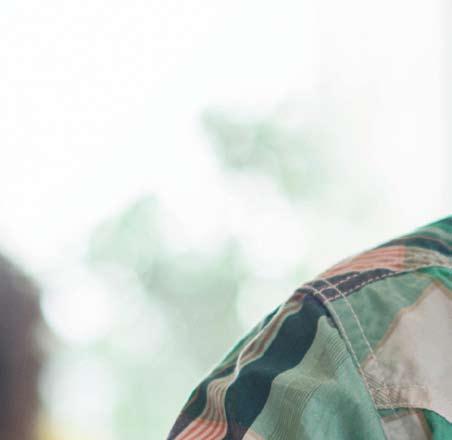

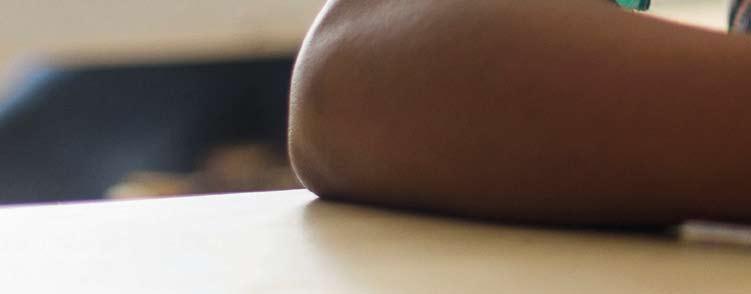







BY JACQUELINE NEBER
Good parent-teacher communication is crucial for any successful school year, but being on the same page becomes even more important when your child has a learning disability. There are a few steps–from understanding your rights to communicating on a regular basis with your child’s teacher–that can help ensure your child has the best year possible, arming you and your child with the knowledge to succeed in and out of the classroom.
Know your rights and speak up. Parents are entitled to receive information about special education from their schools and teachers—reading up and staying informed is the best way to advocate for your kid.
When attending Committee for Special
Education meetings, annual review meetings, or parent-teacher conferences, if you don’t understand something, ask questions.
Communicate with teachers frequently.
Kathy Devine and Emily Cole co-teach at an elementary school in Long Island. They say parents of students with special needs must be extra communicative with teachers.
“We would like to know sooner when things might be happening at home, whether it’s medication changes or maybe something in the home life has changed,” Cole says.
When it comes to homework, “reach out to us as soon as possible so that we’re not waiting until the end of a trimester to know [kids are] struggling,” Devine says.
Another tip? Write a letter describing your child and his needs at the beginning of the year.




Understand Individualized Education Plan goals.
Equally important is understanding your child’s IEP goals—which can differ from her classroom goals.
This difference often confuses parents who see their student accomplishing goals on one end of the spectrum and not the other.
Involve your child.
Cassie Reilly, Transition Coordinator at a Long Island high school, suggests involving your kid in IEP and parent-teacher conferences. Being open with kids from the time of diagnosis helps them stand up for themselves and understand their learning disability does not make them inferior to others.
Be sensitive to difference.
Parents should understand their kids might be different at home than at school, Reilly adds. And, even more importantly, their kids might have an atypical path toward success. Communicating with teachers is key to understanding how your kid can progress in the best way.

As an independent day school for children with dyslexia and language-based learning disabilities, we believe difference is power. Through highly trained educators and evidence-based programs, we empower students in grades 1 through 9 with the skills and confidence to return to mainstream schools.
Committed to making a Windward education accessible for all, we award more than $9 million per year in tuition assistance.
Scan the QR code to learn




By Dana GreenBerG
My son has autism, so when I need to leave him with a babysitter, I am extremely picky about who that person is going to be. There are so many things that go through my head as a parent of a child with special needs. Who can I trust with him, especially since he has limited verbal skills? Will his babysitter understand his wants and needs? Will he be happy and engaged while I am gone? Over the years, I have come up with a system for choosing a babysitter that has worked well for us. This is how I do it.
There are some very good places that you may not have thought of for finding sitters for kids with special needs.
I contact local special education schools and therapy centers, both of which are wonderful resources for this. Try calling them, and you will usually be put in touch with the right person to help you out, such as a social worker or psychologist. When you speak with that person, let them know exactly they type of person you are seeking as a babysitter. Let her know how old your child is and anything else you think may be important to share. You will find that many teachers, teaching assistants, and therapists are looking to earn extra money. The social worker or psychologist can circulate your contact information among the staff. One of the best reasons to get sitters from these places is that they are already fingerprinted and have had background checks done. Referrals from other parents with special needs children can also work as a great resource for finding people. I find that we parents are each other’s best sources of information. You can fully describe your child to other parent without feeling like you need to hold anything back. With that information, they will know if they have someone who would be a good fit.

I like to meet as many potential sitters as I can. You may find that different people or personalities work better in different situations. I have some sitters that I prefer to use if they will be staying at home with my son and others that I prefer to use if they will be doing an outing with him. It is great to have choices, and not everyone may feel comfortable taking him out.
Another reason I like to meet a variety of people is more basic: We all need back-up. You just never know who will be free when you need someone. There have been times when I have gotten to my fourth call before getting a yes. I certainly was glad I had my list of trusted babysitters to call upon when that situation came up. The bigger the list you can compile, the better it will be in the long term. It is important to know that you have multiple great, trusted people to call upon.
After compiling my list of who I would like to meet, it is time to have initial interviews with them. The first time I meet a new person I prefer to do it alone, just me and them, without my son present. That’s because my son has very good receptive language and I do not like to talk about him in front of him. At these meetings, I like to tell the candidate all about
my son--his likes, his dislikes, his routines, what makes him happy, what bowl he likes for his snacks, that he likes ice cubes in his water, everything and anything that might be important to know while watching him.
I truly feel that I cannot give a sitter too much detailed information. I need to be his voice. We can also discuss how much I will pay. This is also the candidates’ opportunity to ask me anything that they want. Based on how this meeting goes, I will decide if I want to continue the process with each person I meet.
Now that I have done initial interviews, it is time to check references for those I am highly interested in hiring. It is a good idea to do this regardless of where someone’s full time job is. You may want to speak with someone else for whom they babysit (or babysat in the past) or maybe a supervisor or co-worker at their current job. Have your list of questions prepared before you make the calls.
You should feel free and comfortable to ask anything; after all, this is your child’s welfare we are talking about. Ask specific questions about the candidate’s interactions with children, how they’ve handled certain situations, and the like. I always like to ask about punctuality, too. This is the opportunity to get a feel for whether this person may be the right fit and if you want to
continue moving along with them.
Assuming the references check out, I next schedule a meeting between the potential new sitter and my child. The meeting takes place in my home. I will prepare my son the best I can, by telling him the person’s name and that they are coming over to see where he lives and what he likes to play with. Once they arrive I will make the introduction. I will show them around, pointing out where my son likes to hang out and where his favorite snacks are, for instance. I will go over how we do certain things, and our routines. I want all his babysitters to be comfortable handling anything that may arise while I am out.
This is another instance in which I have a list ready so I do not forget anything that may be important. Discussing all of these details in depth at this time will make it a lot easier the first time I go out and leave him with this person. I will not have to take the time then to go over everything from scratch, and instead we can just do a review.
This is also the chance to see how they
interact with him. I pay close attention and try to feel the vibe. Usually I can tell at this point if a particular candidate would be a good match for my son.
For those sitters who might take my son out, I will invite them to go on an outing with us. This is where I will train them on how to be outside with him, which is a very different situation than just staying indoors. There is a lot to know: He likes to scare birds, he may not want to hold your hand, he will constantly ask you how many more blocks you’re going. How will the babysitter react to all of this--or whatever else may come up while outside? His safety must be the priority. This person will need to be on high alert the entire time. I need to feel 100% confident that this sitter is up to this task, and they need to be prepared for the unexpected with him. I will guide them through this outing and see how they feel, and again ask if they have any questions or concerns.
The Babysitter’s Commute
Where a sitter lives is important to me. Just

because you are identifying candidates via a school or center it does not necessarily mean that they live nearby. I need to know that all candidates can independently get to and from my apartment. I need to make sure they understand that they will need to leave enough time for the trip. If you have a younger child, you will not want to have to pack them up to pick up or take the sitter home, especially at night. I find that most sitters can come and go on their own, but this is something I like to confirm before hiring someone. It is always good to make sure you are on the same page about anything that you think is important.
This is my process, the steps I like to go through when choosing a sitter for my child who has special needs. Every question is important and no detail is too small to mention. Make your lists, and do whatever it takes to put your mind at ease. Who we leave our children with is one of the most important decisions we make as a parent. We need to feel comfortable and confident with our decisions so we can go out and have peace of mind.


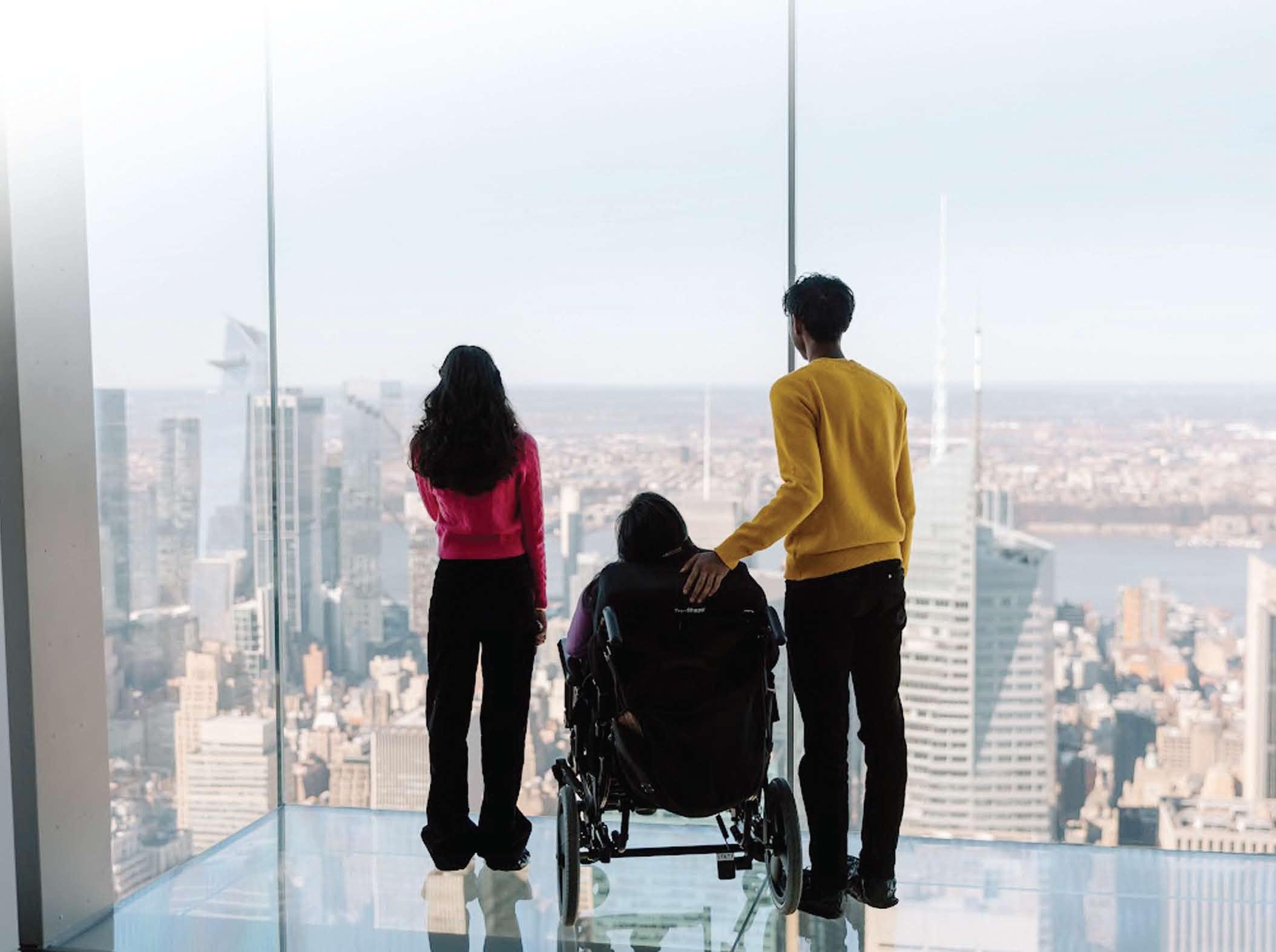
By Donna Duarte-LaDD
New Yorkers and visitors love their heights, and our skyscrapers are some of the most iconic in the world. SUMMIT One Vanderbilt, a three-level multi-sensory art immersion many of us have already visited, is one of those visual experiences. Yet, did you know they are super accessible too?
As we have shared before, when you are parents to a child with a disability or have a disability yourself, it can be overwhelming for all when wanting to visit a busy cultural spot. Already a multi-sensory experience, the SUMMIT One Vanderbilt observatory is suspended almost 1300 feet, where you can experience an eclectic showing of art, sky boxes, and a stunning observation deck designed to be interactive and engaging for visitors.
Advocacy is part of Summit One Vanderbilts fabric
From the beginning, SUMMIT One Vanderbilt has always woven accessibility into its experience. Their advocacy for change in how people with disabilities experience their space is something they have always invested in.
In partnership with Accessible Travel NYC, the local authority on inclusive travel in NYC, and created by Potter Productions, SUMMIT One Vanderbilt has unveiled a series of accessibility videos for marketing, training, and guest experience services highlighting the immersive space’s capabilities. It was amazing to learn about how important it has been to know about the experts who have helped shape their accessibility initiatives, for example, learning how to address neurodivergent people. The team at One Summit is invested in the underrepresented being seen and heard and is always open to learning to improve.
What we learned
We learned a lot, but the standouts that we feel will benefit families are:
• Service animals are welcomed
• Every level of SUMMIT One Vanderbilt is fully wheelchair accessible across all four levels
• You can contact One Summit (at least three weeks before the date you wish to visit) to request a Sighted Guide or an American Sign Language (ASL) interpreter
Visit summitov.com/accessibility to download Sensory Access Maps and social narratives and learn about their accessibility initiative.
SUMMIT One Vanderbilt Tickets: $43-$63
45 E 42nd St, New York, NY 10017
The entrance is located on the Main Concourse of Grand Central Terminal

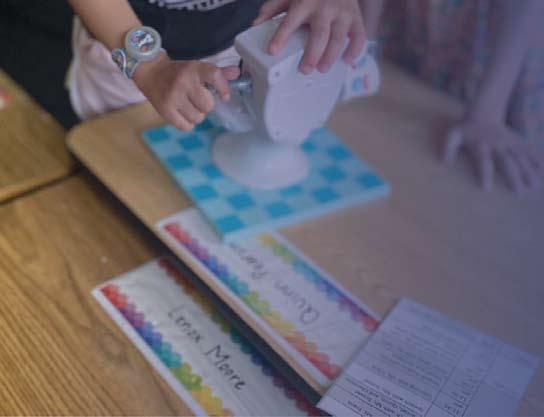















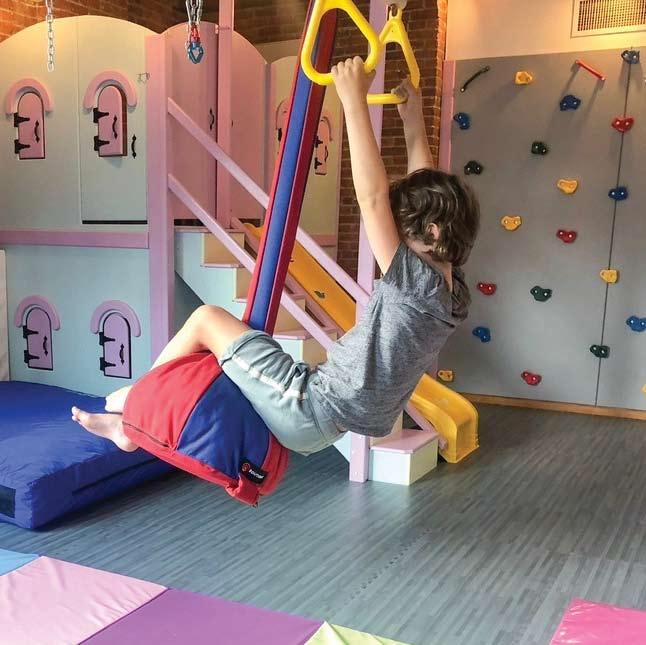

Keywords that every special needs family should know
By Mia Sala S
Part of navigating a special needs diagnosis is knowing the words used to describe it. But it can be intimidating to ask what everything means, especially when doctors or websites seem to be speaking another language with acronyms like “ERSS” and “OT”. We’ve all been in that confusing place before and, as parents, it’s not a fun feeling. That’s why, we’ve created a glossary for keywords that you may want to know as a parent of kids with special needs. This guide includes common special needs words, phrases, and acronyms so that you can feel more confident in your parenting journey!
Special Needs Diagnosis
Developmental disability: Physical, learning, language, or behavioral impairments that will delay your child’s development. ADHD, Autism, learning disabilities, etc. are all examples of developmental disabilities.
ADHD– Attention Deficit/Hyperactivity Disorder: A developmental disability that makes it difficult for your child to pay attention or stay focused. Look out for squirming and fidgeting, talking a lot, not being able to wait for their turn, or trouble concentrating.
ASD– Autism Spectrum Disorder: A developmental disability that may delay your child’s speech, motor, learning, and social skills. Early intervention (see below) can help improve skills.
Down Syndrome: A condition caused by an extra chromosome that affects how your child’s brain and body develop. Diagnosis typically happens before or during birth. Emotional Disturbance: Mental health disorders such as anxiety, bipolar, OCD, etc. that have no direct, identifiable cause. Be on the lookout for aggressive behavior,
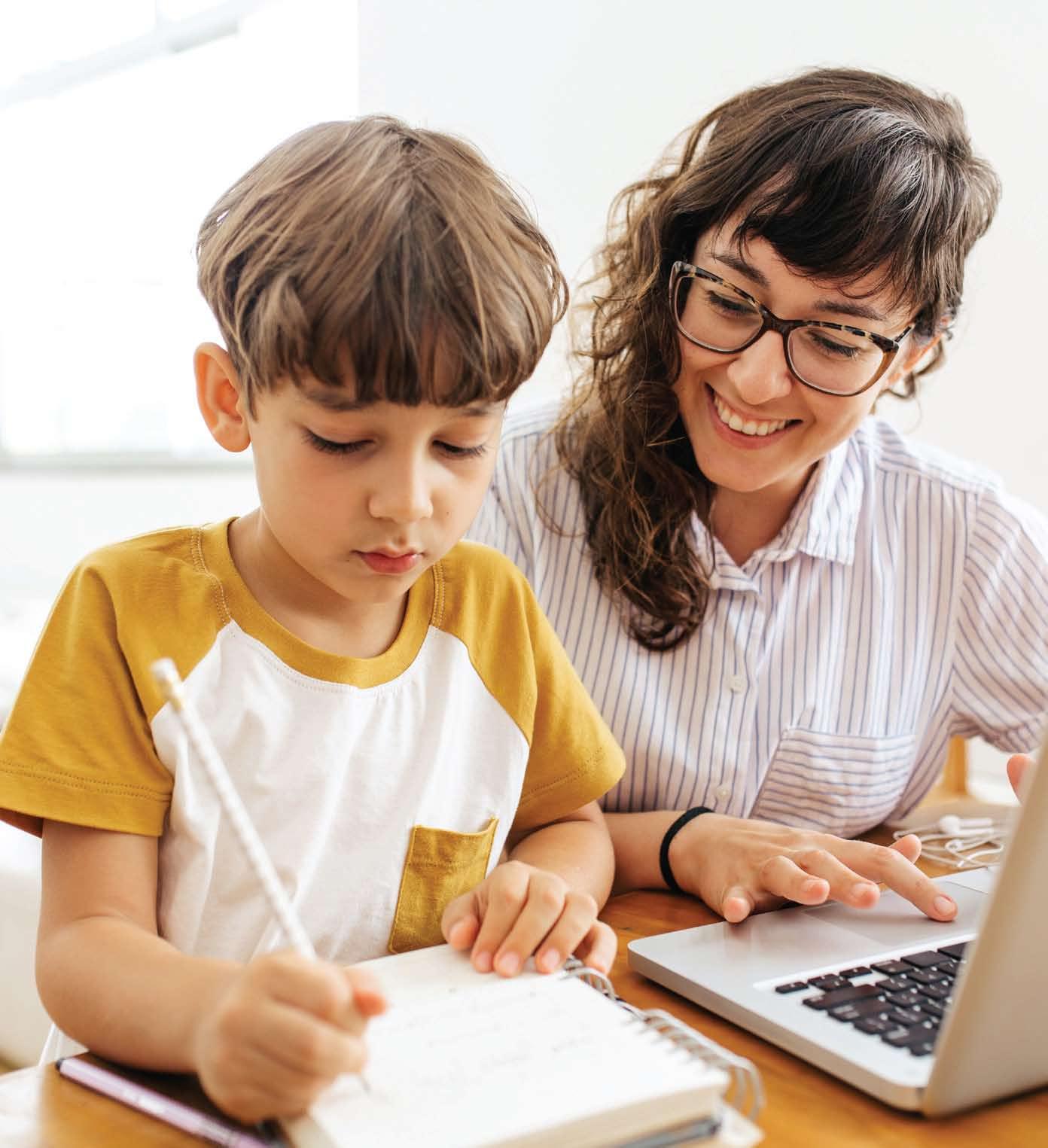
withdrawal or nerves related to social environments, and vocal outbursts in public places.
Learning Disability: Difficulty learning and grasping new concepts. Learning disabilities include dyslexia (reading), dysgraphia (writing), and dyscalculia (math). See Special Education for more. Stutter: A speech disorder that makes it challenging for your child to say what they want to say. You may hear them repeat a sound a lot, hold one sound for a long time, or stop speaking mid-sentence.
OPWDD– Office of People with Developmental Disabilities: A New York organization that can help connect your family to nonprofit services, based on what kind of treatment/therapy they need, and provide funding.
Transition planning: Creating an action plan for what your child with special needs will do after high school. This is often a part of your IEP (see below).
Service provider: An agency or organization that will help your special needs family navigate some aspect of your journey. This could be everything from speech therapy to after school programs with a focus on special needs to horseback riding as a form of physical therapy.
INCLUDEnyc: A non-profit organization that
advocates for young people in NYC to be included in their communities: classrooms, workplaces, etc. They have super informative resources for parents of kids with special needs, and they can connect you with professionals who can help you navigate your options even further.
Inclusion: Everyone in the classroom feels welcomed by the school, teacher, and classmates. For special needs kids, inclusion is definitely a keyword to look for when choosing a school!
IEP– Individualized Education Program: A written plan for your child’s education as a special needs student. According to the NYC Department of Education (DOE), this means your child is guaranteed a free and appropriate public education in a Least Restrictive Environment (see below). Your child’s IEP will also include development and progress reports, evaluation results, specific needs, and anything else that is relevant to your child’s success.
IEP Teams: Your IEP team will be made up of you (as a parent/guardian), a school psychologist, a special education teacher (and sometimes a general education teacher), and the district representative. It may also include a school physician or other service providers who have worked with your child.
LRE– Least Restrictive Environment: Your child will be in a classroom with kids who do not have special needs.
SETSS– Special Education Teacher Support Services: Either a special education teacher will design specific activities for children with special needs or the special education teacher will collaborate with the general education teacher to modify the entire classroom to accommodate.
SEDL– Special Education Distance Learning: Modifying special needs education for virtual/online students. This became especially important during the pandemic.
SWD– Students With Disabilities: Used to refer to special needs children in the classroom.
SC– Special Class: If your child’s needs cannot be met in a general education classroom, they will have all classes taught specifically by a special education teacher. These classes are typically very small in NYC schools, with up to 12 students for elementary/middle school and up to 15 for high school.
PBIS– Positive Behavioral Interventions & Support: NYC school-wide approach that encourages positive behavior instead of punishing or pointing out the negative. One example of this is changing a poster from “No Food. No Weapons. No Drugs.” to “School Rules: Be Safe, Responsible, Respectful”. This positive environment is especially important for special needs education.
ADL– Activities of daily living: Day-to-day actions like brushing your teeth, going to the bathroom, walking up and down stairs, etc. that are used to determine your child’s diagnosis and progress.
Early intervention: Services and support for infants and young children with developmental disabilities. Early intervention can often help improve your child’s skills and progress.
OT– Occupational Therapy: Focuses on ADL’s (see above) and other everyday skills that your child will work on.
PT- Physical Therapy: Focuses on physical
developmental disabilities and helps your child with mobility and movement.
Speech pathology: Focuses on language and speech disabilities to help your child communicate their thoughts.
Regression: Your child loses skills that they previously had. If regression happens, you may want to revisit and revise your child’s IEP (see above).
AT– Assistive technology: Any device that helps your child’s special needs by improving their capabilities. AT’s include wheelchairs, text to speech, voice recognition, and more.
ABA– Applied Behavior Analysis: A positive-reinforcement program designed to understand your child’s behavior in real life situations. It is most commonly used for children with Autism, but it can also be effective for other developmental disabilities.
Developmental milestones: Key movements, expressions, speech etc. that show your child’s progress. For little ones, this may include smiling at people, crawling, copying sounds, and reaching for toys.
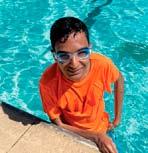


advanced Math & science ii
900 Tinton Ave
718-665-3671
newvisions.org/ams2 jsingleton27@unitedcharter. org
AMS 2 offers co-taught classes to support students academically, a full time counselor to provide mandated services, and dedicated caseload managers who support students from ninth grade as they adjust to high school all the way through to their transition to college or the career of their choice. They consistently partner with families and students to ensure that students are growing as scholars and as people throughout their four years at AMS 2.
autism b ehavioral consulting s ervices
Karen Bottalico, SAS, SDA 516-851-8330 kbottalico2002@yahoo.com
An Educational Consultant serving Queens and Long Island and the NY Metro area. Working directly with families, services include: Evaluat-


ing placement and service options; Accompanying parents throughout the entire CPSE or CSE process which includes meetings, screenings, observations and extensive education history reviews. Other services include Staff Training, School-Based Consultation, FBA Assessment and BIP Implementation, ABA and Verbal Behavior Training Techniques, Behavior Management Strategies, Home/ School Intensive Behavior Intervention Services, Crisis Intervention and Prevention, Home-Based Services and Parent Education Training.
c amp lee Mar
450 Route 590, Lackawaxen, PA Winter: 215-658-1708 Summer: 570-685-7188 leemar.com
A private, seven-week residential summer program offering a unique curriculum incorporating a strong Academic and Speech program with traditional camp activities. Campers flourish at Lee

Mar due to the structured environment provided allowing campers to feel comfortable and secure. Careful study is made of parent input, school (IEPs), camper interview, etc., so that the interests and needs of each child can be determined for suitable grouping prior arrival. Camp Lee Mar focuses on improving the daily living, social, and life skills of their campers, while giving them the happiest summer of their lives!
comprehend the Mind P.c . 114-20 Queens Blvd., Suite CS 2, Forest Hills 718-441-0166 comprehendthemind.com
Comprehend the Mind is a group of neuropsychologists that diagnose and assess a variety of conditions. Neuropsychological, educational, speech and language, and psychiatric evaluations are performed to help you understand your child’s strengths and weaknesses, and plan for their educational success and emotional well-being.
downtown k ids therapy
179 Franklin St. #4R, Manhattan 32 Union Square E #400, Manhattan 212-226-3222
downtownkidstherapy.com contact@ downtownkidstherapy.com
Downtown Kids Therapy provides occupational, physical, and speech-language services to children from to 13 years old. Owned and operated by a group of dedicated therapists, they strive to meet the community’s need for therapy that is both fun and functional. Staff’s play-based methods encourage development while supporting individualized needs. There are sensory gym locations in Tribeca and Union Square, and home or school sessions are offered upon request.
Family s peech center
25-32 168th Street, Flushing 718-939-0306
familyspeechcenter.com
familyspeechcenter@verizon. net

Our program is designed so that children with anxiety, depression, and other emotional complexities can thrive, succeed, and prepare for college.
Stevenson provides integrated therapeutic support that informs every aspect of our work with students in grades 8-12.
We have rolling admissions. To find out more about our school, contact us at admissions@stevenson-school.org or 212.787.6400.
24 West 74th Street, New York, NY 10023 www.stevenson-school.org
Certified Speech-Language Pathologists evaluate and diagnose children to identify specific speech, language or swallowing difficulties. Services include speech-language evaluations and treatment for individuals with articulation and stuttering problems. Assessment procedures depend on the age of the client; very small children are assessed in an informal play-based environment. Medical plans and Dept. of Ed IEP’s are accepted for both preschool and school-aged children.
the g illen b rewer school 410 East 92nd St. 212-831-3667 gillenbrewer.com admissions@gillenbrewer.com
The Gillen Brewer School offers students pre-K to 8th grade an academic-therapeutic approach to special education. Their mission is to educate and support students to become confident, independent, and engaged learners. Their program features a hands-on, language-based
curriculum that integrates speech and language therapy, occupational therapy, counseling, and social groups into each child’s schedule. Children from across NYC are immersed in learning that is developmentally appropriate and socially engaging.
the ideal school of Manhattan 5 Hanover Square 212-769-1699 theidealschool.org admissions@theidealschool. org
The IDEAL School of Manhattan is a different kind of private school. We expand the definition of diversity to include ability and economic status. Generous financial assistance packages have built a student body that is more diverse than any other private school. The robust academic program is designed to meet students where they are to reach their goals. Schedule a visit or join an open house to learn more.



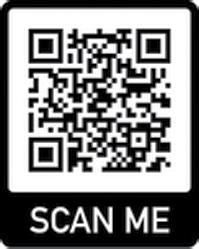
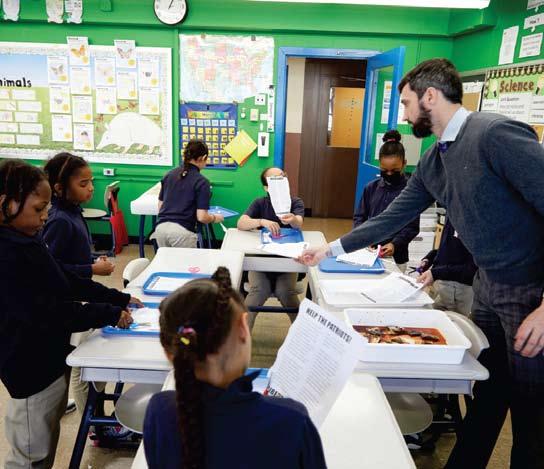
long i sland s peech
Nine locations 844-5-SPEECH lispeech.com
Long Island Speech is the leading speech therapy provider on Long Island with 9 locations in Nassau and Suffolk County. They specialize in Myofunctional Therapy, PROMPT, Voice Disorders, Fluency, Augmentative Communications, Articulation, Feeding Therapy, Auditory Processing, Expressive/Receptive Language Disorders and so much more. Long Island Speech participates with most major health insurance companies and offers evening and weekend hours.
Manhattan charter school
MCSI & MCSII
212-533-2743
manhattancharterschool.org admissions@ manhattancharterschool.org
Manhattan Charter Schools provide a supportive, inclusive environment for students with special needs.
Their specialized programs are designed to meet the unique needs of every child, including individualized education plans (IEPs), small class sizes, and dedicated special education teachers. Staff fosters academic growth, socialemotional development, and independence, preparing students for lifelong success. Their commitment to inclusivity ensures every student receives the support they need to thrive in a dynamic learning community. Now accepting applications K-7.
the Parkside school
48 West 74th St. 212-721-8888
alevinger@parksideschool.org parksideschool.org
The Parkside School provides a nurturing and dynamic learning environment for students with languagebased learning differences and disabilities. Through a robust curriculum integrating academic, social, and
The perfect balance of education and nature to create a great foundation for learning.

Located in Gowanus, Brooklyn, Rivendell Preschool is an ‘amplified’ Montessori program for children ages 2 – 5. At Rivendell teachers know that learning to get along with a wide range of friends and respecting their similarities and differences has lasting benefits for each student! Visit Rivendell for an inperson tour of our classrooms, rooftop play yard and backyard Growing Connections greenhouse where children and teachers work and play together. Email Kara.pereira@rivendellnyc.org to join an in-person weekday morning tour.
In-Person Tours
rivendellnyc.org 718-499-5667 277 Third Avenue Brooklyn, NY 11215 for 2024-2025 Admissions Starting NOW!

emotional development, Parkside helps children thrive and achieve their full potential. With a specialized team of teachers and therapists, and a strong sense of community, Parkside fosters growth in a supportive setting, encouraging independence and a love of learning.
Queens theatre
14 United Nations Avenue South, Flushing Meadows Corona Park 917-566-0969 queenstheatre.org boxoffice@queenstheatre.org
Located in Flushing Meadows Corona Park, Queens Theatre is welcoming to all families. They present a wide range of performances at low ticket prices, including many for young audiences, from Omnium Circus to Pete the Cat. QT prioritizes accessibility, routinely offering ASL interpretation, Audio Description, Touch tours and more at performances. The facility is wheelchair accessible, park-
ing is free, and a shuttle runs between the 7 stop at MetsWillets Point before and after performances.
r ivendell school
277 3rd Ave. 718-499-5667 rivendellnyc.org Kara.pereira@rivendellnyc.org
Located in Gowanus, Brooklyn, Rivendell Preschool is an ‘amplified’ Montessori program for children ages 2 to 5. At Rivendell teachers know that learning to get along with a wide range of friends and respecting their similarities and differences has lasting benefits for each student! Visit Rivendell for an in-person tour of the classrooms, rooftop play yard and backyard Growing Connections greenhouse where children and teachers work and play together.
robert louis stevenson school 24 West 74th St. steveson-school.org admissions@stevensonschool.org
NYS approved and funded non-public school providing therapeutic and educational services to students diagnosed with AU, MD, ID, OHI, OI, ED, & PWD, ages 3 - 21, with locations in Yonkers & North Salem
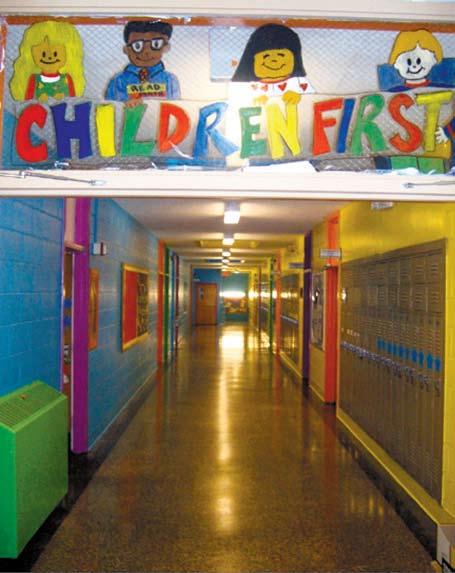
Ungraded, self-contained classrooms with a student to staff ratio of 12:1:4 & 8:1:2 in SchoolAged classrooms and a ratio of 10:1:2 in Preschool classrooms.
• A s sis t ance wit h t r ansitioning to po s t academic life by pr oviding Vocational and J ob S k ill oppor t unities
• A daptive P hysical Education and a S ens or y R o om
Stevenson is Manhattan’s premier therapeutic college preparatory independent school. Their proven track record of academic and therapeutic progress begins with their unique program. Stevenson students receive small classroom instruction, intensive advisor support, and on-demand access to a fully staffed Counseling Center throughout each day. Furthermore, their Postsecondary Coaching Program helps to promote postsecondary success. Anxiety and depression aren’t locked into a calendar. Neither is Stevenson’s Admissions.
stepping stone day school
2826 Westchester Avenue
Bronx, New York, 10461
Tel: 718.554.2025
steppingstonedayschool.com
37 years ago SSDS opened its doors to provide services to children. The schools have remained true to the original vision which embraced the sentiment that “All children can”. SSDS continues to
be at the forefront of best practices in early childhood services.
Westchester school
45 Park Avenue, Yonkers, NY
520 Route 22, North Salem NY
33 Seymour St., Yonkers NY (Pre-K)
914-376-4300
westchesterschool.org
The Westchester School is a New York State approved, non-public school that provides educational and therapeutic services to students from Long Island, New York City, the Hudson Valley, and Connecticut. With campuses in Yonkers and North Salem, NY the program provides services to over 300 students with the classifications of Autism, Intellectual Disability, Multiple Disabilities, Orthopedic Impairment, Other Health Impairment, Emotional Disability, and Preschool Student with a Disability.
the Windward s chool
1275 Mamaroneck Ave, White Plains - Lower School
40 West Red Oak Lane, White Plains - Middle School 914-949-6968
212 E. 93rd St, NYC – Lower and Middle Schools 212-222-8628
thewindwardschool.org
A coeducational, independent day school located in NYC and White Plains for children in grades 1 through 9 with language-based learning
disabilities. Committed to helping students achieve their full potential to successfully return to a mainstream educational environment, Windward remediates students’ skill deficits through a proven instructional program— combined with opportunities for social and emotional growth—to enable students to understand their learning differences, build confidence, and develop self-advocacy skills.

